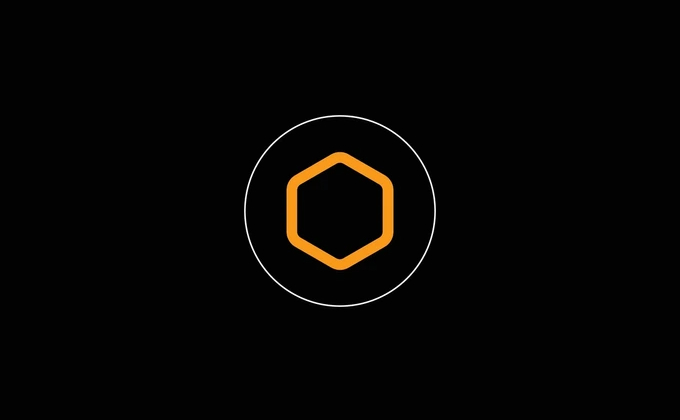-
 Bitcoin
Bitcoin $83,137.7326
0.86% -
 Ethereum
Ethereum $1,872.0062
-2.21% -
 Tether USDt
Tether USDt $0.9999
-0.01% -
 XRP
XRP $2.2346
2.08% -
 BNB
BNB $578.2522
4.06% -
 Solana
Solana $124.2756
0.88% -
 USDC
USDC $0.9997
0.01% -
 Cardano
Cardano $0.7177
-2.29% -
 Dogecoin
Dogecoin $0.1699
2.69% -
 TRON
TRON $0.2239
0.76% -
 Pi
Pi $1.6916
6.80% -
 UNUS SED LEO
UNUS SED LEO $9.6843
-2.17% -
 Chainlink
Chainlink $13.1403
0.46% -
 Hedera
Hedera $0.1946
-3.29% -
 Stellar
Stellar $0.2648
4.09% -
 Avalanche
Avalanche $18.8134
7.19% -
 Shiba Inu
Shiba Inu $0.0...01216
0.50% -
 Sui
Sui $2.2344
-0.75% -
 Litecoin
Litecoin $89.3374
-0.75% -
 Toncoin
Toncoin $2.7147
1.77% -
 Bitcoin Cash
Bitcoin Cash $336.6627
0.34% -
 MANTRA
MANTRA $6.4475
2.84% -
 Polkadot
Polkadot $3.9507
-1.00% -
 Ethena USDe
Ethena USDe $0.9995
0.02% -
 Dai
Dai $0.9999
0.00% -
 Bitget Token
Bitget Token $4.1865
0.50% -
 Hyperliquid
Hyperliquid $12.5255
-9.43% -
 Monero
Monero $207.6259
-0.87% -
 Uniswap
Uniswap $5.8213
-3.05% -
 Aptos
Aptos $5.1302
-1.07%
How to buy and sell CORE coins
Buying and selling CORE coins involves using a cryptocurrency exchange to create an account, fund it, place a trade order, and withdraw or sell the coins as needed.
Nov 13, 2024 at 10:36 am

How to Buy and Sell CORE Coins
CORE is a decentralized, open-source blockchain network designed to facilitate the creation and execution of smart contracts. Its native cryptocurrency, CORE, is used to pay for transaction fees and to reward miners for their contributions to the network. If you're interested in buying or selling CORE coins, here's a step-by-step guide to help you get started:
1. Choose a Cryptocurrency Exchange
The first step to buying or selling CORE coins is to choose a cryptocurrency exchange that supports it. There are several reputable exchanges that offer CORE trading, including:
- Binance
- Huobi
- OKX
- Gate.io
- KuCoin
Each exchange has its own unique fees and trading features, so it's important to compare them carefully before choosing one.
2. Create an Account on the Exchange
Once you've chosen an exchange, you'll need to create an account. This typically involves providing your email address, creating a password, and verifying your identity.
3. Fund Your Account
Before you can start trading CORE coins, you'll need to fund your account with either fiat currency (e.g., USD, EUR) or another cryptocurrency. Most exchanges support a variety of deposit methods, including bank transfers, credit/debit cards, and e-wallets.
4. Place a Buy or Sell Order
Once your account is funded, you can place a buy or sell order for CORE coins. To buy CORE, you'll need to specify how many coins you want to buy and the price you're willing to pay. To sell CORE, you'll need to specify how many coins you want to sell and the price you're willing to accept.
5. Wait for Your Order to Be Filled
Once you've placed an order, it will be added to the exchange's order book. Your order will be filled when another trader is willing to buy or sell CORE coins at the price you've specified.
6. Withdraw Your CORE Coins
Once your order has been filled, you can withdraw your CORE coins to your own wallet. This is a secure way to store your coins and keep them safe from theft.
7. Sell Your CORE Coins
If you ever decide to sell your CORE coins, you can do so on the same exchange where you bought them. Simply place a sell order for the desired amount of coins and the price you're willing to accept.
Additional Tips for Buying and Selling CORE Coins
- Do your research. Before you buy or sell CORE coins, it's important to do your research and understand how the network works. This will help you make informed decisions about when to buy and sell.
- Set realistic expectations. Don't expect to get rich quick by buying CORE coins. The cryptocurrency market is volatile, and there is always the risk of losing money.
- Only invest what you can afford to lose. Never invest more money in CORE coins than you can afford to lose. Cryptocurrency is a high-risk investment, and you should never invest more money than you can afford to lose.
Disclaimer:info@kdj.com
The information provided is not trading advice. kdj.com does not assume any responsibility for any investments made based on the information provided in this article. Cryptocurrencies are highly volatile and it is highly recommended that you invest with caution after thorough research!
If you believe that the content used on this website infringes your copyright, please contact us immediately (info@kdj.com) and we will delete it promptly.
- The Latest Bearish Crypto Prices Have No Doubt Had a Massive Impact on Investor Balances.
- 2025-03-13 15:30:51
- Kaanch Network Presale: 700% Profit So Far – Secure Tokens at $0.08 Before Price Jumps to $0.16!
- 2025-03-13 15:15:51
- Can Binance Coin (BNB) Reach $750 After a $2 Billion Investment from MGX Group?
- 2025-03-13 15:10:51
- Bitcoin (BTC) price surpasses $84,000 as cooler inflation data boosts risk appetite
- 2025-03-13 15:05:51
- Tether CEO Paolo Ardoino has highlighted the importance of the USDT stablecoin as a pillar for preserving the dollar's supremacy in the global economic landscape.
- 2025-03-13 15:05:51
- Nebraska Enacts New Law Requiring Cryptocurrency ATM Operators to Obtain Licenses and Implement Anti-Fraud Measures
- 2025-03-13 15:05:51
Related knowledge

What is Ethereum’s Slashing mechanism and how to punish malicious behavior?
Feb 20,2025 at 03:08am
Key PointsOverview of slashingDifferent types of slashing in EthereumIncentives and consequences of slashingIdentifying and reporting slashed validatorsOngoing discussions and potential improvementsEthereum's Slashing Mechanism: Punishing Malicious BehaviorEthereum's slashing mechanism is an essential tool for ensuring network security and punishing mal...

What is the verifier node of Ethereum and how to become a verifier?
Feb 19,2025 at 06:00pm
The Verifier Node of Ethereum: A Comprehensive GuideKey Points:What is a Verifier Node?How to Become a Verifier NodeResponsibilities and Rewards of a Verifier NodeMinimum Requirements for Becoming a Verifier NodePotential Difficulties in Running a Verifier Node1. What is a Verifier Node?A Verifier Node is an independent entity on the Ethereum network th...

What is Ethereum’s staking, and how to participate and earn money?
Feb 19,2025 at 04:37pm
Key Points:Understanding Ethereum's Staking MechanismSteps to Participate in StakingBenefits and Rewards of StakingSecurity and Risk ConsiderationsTechnical Requirements and Hardware OptionsPotential Challenges and Troubleshooting TipsFAQs on Ethereum StakingWhat is Ethereum's Staking?Proof-of-Stake (PoS) is a consensus mechanism used in blockchain netw...

What is Ethereum’s DAO (Decentralized Autonomous Organization) and how does it work?
Feb 20,2025 at 03:12am
Key PointsDefinition and Structure of a DAOGovernance and Decision-Making in DAOsBenefits and Use Cases of DAOsChallenges and Limitations of DAOsWhat is Ethereum's DAO (Decentralized Autonomous Organization) and How Does It Work?Definition and Structure of a DAOA Decentralized Autonomous Organization (DAO) is an innovative governance and management fram...

What is Ethereum's multi-signature wallet and how to improve security?
Feb 20,2025 at 02:18pm
Key Points:Understanding the Concept of a Multi-Signature WalletBenefits and Drawbacks of Multisig WalletsRequirements for Setting Up a Multisig WalletStep-by-Step Guide to Generating a Multisig WalletImplementing Strategies for Enhanced Security1. Understanding the Concept of a Multi-Signature WalletA multi-signature (multisig) wallet in the Ethereum e...

What is Ethereum's oracle and how to provide data for smart contracts?
Feb 21,2025 at 01:30am
Key Points:Understanding the concept of oracles in EthereumExploring different types of oraclesDetailed guide on how to provide data for smart contractsAddressing potential challenges and considerationsWhat is Ethereum's Oracle?Oracles are crucial components in the Ethereum ecosystem, enabling smart contracts to access real-world data and off-chain even...

What is Ethereum’s Slashing mechanism and how to punish malicious behavior?
Feb 20,2025 at 03:08am
Key PointsOverview of slashingDifferent types of slashing in EthereumIncentives and consequences of slashingIdentifying and reporting slashed validatorsOngoing discussions and potential improvementsEthereum's Slashing Mechanism: Punishing Malicious BehaviorEthereum's slashing mechanism is an essential tool for ensuring network security and punishing mal...

What is the verifier node of Ethereum and how to become a verifier?
Feb 19,2025 at 06:00pm
The Verifier Node of Ethereum: A Comprehensive GuideKey Points:What is a Verifier Node?How to Become a Verifier NodeResponsibilities and Rewards of a Verifier NodeMinimum Requirements for Becoming a Verifier NodePotential Difficulties in Running a Verifier Node1. What is a Verifier Node?A Verifier Node is an independent entity on the Ethereum network th...

What is Ethereum’s staking, and how to participate and earn money?
Feb 19,2025 at 04:37pm
Key Points:Understanding Ethereum's Staking MechanismSteps to Participate in StakingBenefits and Rewards of StakingSecurity and Risk ConsiderationsTechnical Requirements and Hardware OptionsPotential Challenges and Troubleshooting TipsFAQs on Ethereum StakingWhat is Ethereum's Staking?Proof-of-Stake (PoS) is a consensus mechanism used in blockchain netw...

What is Ethereum’s DAO (Decentralized Autonomous Organization) and how does it work?
Feb 20,2025 at 03:12am
Key PointsDefinition and Structure of a DAOGovernance and Decision-Making in DAOsBenefits and Use Cases of DAOsChallenges and Limitations of DAOsWhat is Ethereum's DAO (Decentralized Autonomous Organization) and How Does It Work?Definition and Structure of a DAOA Decentralized Autonomous Organization (DAO) is an innovative governance and management fram...

What is Ethereum's multi-signature wallet and how to improve security?
Feb 20,2025 at 02:18pm
Key Points:Understanding the Concept of a Multi-Signature WalletBenefits and Drawbacks of Multisig WalletsRequirements for Setting Up a Multisig WalletStep-by-Step Guide to Generating a Multisig WalletImplementing Strategies for Enhanced Security1. Understanding the Concept of a Multi-Signature WalletA multi-signature (multisig) wallet in the Ethereum e...

What is Ethereum's oracle and how to provide data for smart contracts?
Feb 21,2025 at 01:30am
Key Points:Understanding the concept of oracles in EthereumExploring different types of oraclesDetailed guide on how to provide data for smart contractsAddressing potential challenges and considerationsWhat is Ethereum's Oracle?Oracles are crucial components in the Ethereum ecosystem, enabling smart contracts to access real-world data and off-chain even...
See all articles

















































































